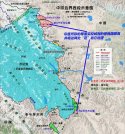I doubt anyone can remember something of that sort because that didn't happen, though I suppose on this forum, historical facts shouldn't get in the way of the repetitive rants about India that are seemingly every second post on certain threads. "Compensation" was a non-starter and if that had actually been demanded in the Deng era, or in any time period since 1949, there would likely still be no diplomatic or trade relations between China and the likes of Britain and France.
The historical fact that the People's Republic was able to wipe the slate clean of colonial vestiges without compensation is one of the core achievements of the new state and precisely the sina qua non that allowed all of China's re-engagement with the West to be done on its own terms in the Deng era.
Aron Shai's "The Fate of British and French Firms in China, 1949-54: Imperialism Imprisoned" concluded:
The increasing tendency by some members with indulging in chauvinistic monologues and near eugenicist tirades - often just short of bringing out the calipers at times - whenever India comes up as a topic seems to have made some members lose track of some of the actual reasons for China's comparative success over India, given their relatively level initial socio-economic starting positions in the 1950s.
As Shai's work notes:
The key difference between China and India is that China successfully broke free from external colonial ties and established a high level of state sovereignty. This allowed a future relationship with the West set on its own terms and, at the time, enabled the Chinese government to exert significant pressure on all colonial business holdings within China by increasing their operational costs, such as mandating actual living wages for their Chinese employees. As a result, foreign businesses in China not only struggled to turn a profit but began bleeding money, with the major multinationals literally bringing in revenue from other regions to pay off its finances in China.
Although these companies appealed to their home governments for support, the new Chinese state, having established true autonomy, rendered London and Paris powerless to intervene. Ultimately, these businesses were compelled to settle with China in order to exit the market, a process that can be described by Shai as the uniquely Chinese strategy of "imperialism imprisoned." This consensual exit precluded any future attempts by these foreign businesses or their governments to return to China with demands or expectations when the country eventually reopened.
This marked a significant departure for modern China from its own Qing era, during which the country was forced to bear the costs of imperialist conflicts against itself, such as the Opium Wars payments and the Boxer indemnity. For likely the first significant time in its history, the West was denied the opportunity to make its victims pay for the military expenditures incurred in subjugating them. This distinguishes modern China from historical cases like France's demand that Haiti repay "damages" for the Haitian Revolution to punish history's first black revolution, which ultimately bankrupted Haiti and contributed to its ongoing poverty.
This was achieved through China's total eradication of the centuries old colonial vested interests through its treatment of foreign capital in the 1950s and this hard reset of colonial economic relations and obligations was what allowed China to engage the West on a more equal terms when China began its Opening Up in the Deng era. This is one of the actual significant contributing factors that made modern China a success story without real parallels within the Global South today and it should be properly appreciated.

